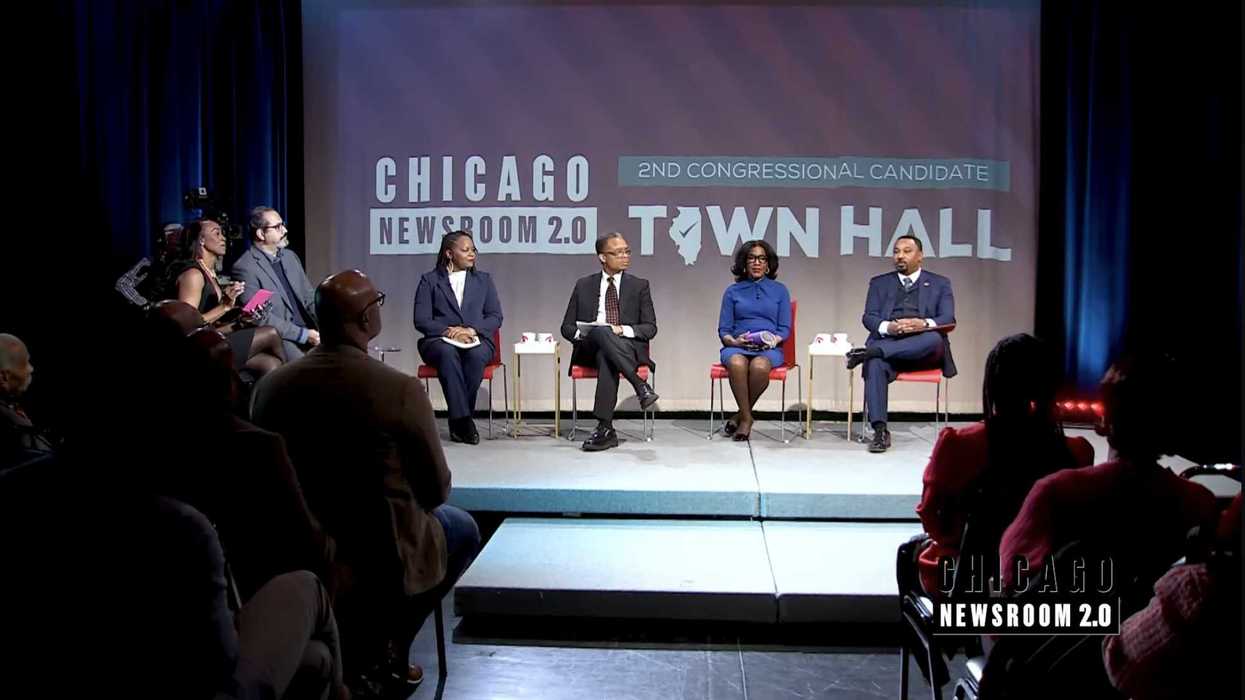The Rescissions Act of 2025 was finally passed on July 18 and its implications will reverberate across continents. This $9 billion budget cut represents far more than fiscal housekeeping—it signals a fundamental retreat from America's role as the world's primary humanitarian superpower.
The bill represents a significant fiscal policy initiative that seeks to permanently cancel previously allocated but unspent federal budget authority - known as 'rescissions'. Introduced in the House on June 6, 2025, by Representative Steve Scalise and five Republican co-sponsors, this legislation implements budget rescissions proposed by President Trump on June 3, 2025, under the Congressional Budget and Impoundment Control Act of 1974. The cuts essentially codify actions taken by the Department of Government Efficiency (DOGE) over recent months - which has been criticized for appropriating congressional authority over budgetary matters by halting spending previously approved by Congress.
The bill operates within a well-established legal framework that requires Congressional approval for presidential rescission requests within 45 days. However, while it used to be routine, as with many things Congressional the process has foundered. Since 1974, presidents have submitted a total of 1,178 rescissions, of which 461 have been approved. President Reagan was the 'rescissionist-in-chief', with $15 billion in cuts through 101 rescissions — about 4% of discretionary spending at the time. President Clinton, the last president to preside over a budget surplus, was also the last to see a presidentially-proposed rescission enacted - until now. And president Trump has already signalled his intent to use the similar process in the future to enact even more swingeing cuts.
The Club for Growth gave a full-throated call for bucking the trend as it called for legislators to pass the bill. It noted that, "Our national debt stands at nearly $37 trillion, and troubling signs are emerging that bond markets no longer believe America will get its fiscal house in order. . . The message from the markets could not be clearer: Congress must cut spending—and cut it now."
Of course, as well as cutting spending the deficit could be addressed by raising taxes. This would be seen by many as a reasonable way to spread the pain, although the recently passed spending bill instead opts for massive tax cuts which will balloon the deficit dwarf by an amount orders of magnitude greater than the relatively modest cuts enacted by this bill. So how painful will the rescission be? Let's take a deep dive into the bill, and how it was amended during passage, and find out.
Read the full IssueVoter analysis here.
When Aid Dollars Disappear: The Human Cost of Budget Politics
The bill's most devastating cuts target international assistance programs with surgical precision. The $2.5 billion reduction in Development Assistance represents one of the largest single cuts in the legislation. These funds typically support poverty alleviation programs, infrastructure development, and economic growth initiatives in developing nations. The rescission would eliminate unobligated balances that had been appropriated but not yet committed to specific projects.
The Global Health Programs face cuts totaling $900 million across two separate funding streams—$500 million from the first paragraph allocation and $400 million from the second paragraph allocation under the Full-Year Continuing Appropriations Act of 2025. These reductions target programs that have historically formed the backbone of American global health leadership, including initiatives addressing infectious diseases, maternal health, and pandemic preparedness. The immediate impact would likely force program administrators to make difficult choices about which health interventions to maintain and which populations to prioritize.
In the crosshairs of the bill as originally drafted and passed by the House were programs such as The President's Emergency Plan for AIDS Relief, or PEPFAR, which was started by former President George W. Bush in 2003, and has been credited with saving over 25 million lives around the world. Mathematician Brooke Nichols has created a tracker, estimating how many people have died as a result of the funding freeze for PEPFAR implemented by DOGE in January. The total currently stands at over 80,000 and increasing.
Making these cuts permanent proved a step too far for some Senators, and the PEPFAR cuts were stripped out before the bill passed the first hurdle in the Senate on July 16.
Nichols has created more trackers, looking at the impact of DOGE cuts on USAID programs more broadly, and estimates 88 people are dying every single hour as a result of programs being withdrawn or scaled back. To date, that amounts to over 350,000 people.
Refugee Assistance in a World of Displacement
Perhaps no cut carries more immediate implications than the $800 million reduction in Migration and Refugee Assistance. This rescission targets unobligated balances from the Full-Year Continuing Appropriations Act of 2025, funds that would typically support refugee resettlement, emergency humanitarian response, and migration management programs worldwide. The administration's justification that "The UN has taken advantage of American generosity for too many years" while "192 other member states have profited from the American people while voting against American interests and allies" reflects broader frustration with multilateral burden-sharing arrangements. However, the immediate operational impact of these funding reductions would affect program implementation regardless of the underlying diplomatic tensions.
The Peacekeeping Paradox: Security Through Withdrawal
The peacekeeping cuts total $361 million across multiple appropriations: $203 million from 2024 Department of State appropriations and $158 million from 2025 continuing appropriations for International Peacekeeping Activities. The administration cites "the abject failure of the Lebanon peacekeeping mission to contain Hezbollah and the ongoing sexual exploitation and abuse in the Democratic Republic of the Congo" as justification for reducing support to UN peacekeeping operations.
Domestic Ripple Effects: Public Broadcasting and Cultural Diplomacy
The legislation also targets the Corporation for Public Broadcasting, which provides funding to NPR and PBS, permanently rescinding funding allocated for fiscal years 2026 and 2027. This would save up to $1.1 billion and targets entities that the White House claims spread 'woke propaganda'. "There is no reason for any media organization to be singled out to receive federal funds," House Speaker Mike Johnson said. "Especially those who appear to have so little regard for the truth." These cuts have proven the most controversial in many ways, with even Republicans expressing concern they may affect the ability of local media to warn residents about emergencies such as earthquakes and hurricanes.
The Journey to Rescission
The U.S. budget is a complicated beast. The Big Beautiful Bill, which was signed by the President on July 4, passed through Congress with the slenderest of margins, but only required a simple majority in both chambers. The rescission bill interestingly also only required a simple majority to pass as it is eligible for fast-track consideration.
Congress had 45 days to act on the package, and therefore had to approve the bill before July 18. It passed out of the House in its original version 214 votes to 212 on June 12 with four Republicans joining all democrats in opposing the bill. Then followed frantic horse trading in the Senate as leadership tried to push the bill through before the deadline. Stripping out the PEPFAR cuts proved enough for all but three Republican senators to back the bill on its first vote, with Vice President Vance casting a tie breaking vote. Sens. Susan Collins, Lisa Murkowski, and Mitch McConnell broke with their party and voted with Democrats to oppose the bill.
The bill faced its final vote in the Senate on July 17 and passed by 51 votes - McConnell having a change of heart and passing the bill at the second attempt. Passionate speeches by Democrats attempting to protect public broadcasting feel on deaf ears. "If you want to watch the left-wing propaganda, turn on MSNBC. But the taxpayers should not be forced to subsidize it.", said Sen. Ted Cruz during the debate.
It then went back to the House and was finally passed on a 216 - 213 vote. It now goes to the President's desk for signature.
Looking Ahead: The Intersection of Fiscal and Foreign Policy
It is worth noting that Congress also needs to pass the 12 annual spending bills, which would require 60 votes to pass the Senate - and so will require some bipartisan support from Democrats. And that support may be in short supply now Republicans have passed this package of massive cuts, according to Senate Democratic Leader Chuck Schumer.
“This is beyond bait and switch — it is a bait and poison-to-kill. Senate Republicans must reject this partisan path and instead work with Democrats on a bipartisan appropriations process,” he said in a letter to Democrat colleagues before the bill passed, noting a reported deal in which Trump officials promised to defund certain programs in exchange for support with Trump's tax and spending bill.
The reality of the U.S. looming fiscal crisis will require tough choices from whichever party is in power. And realistically that will involve both steep spending cuts and tax rises - a politically unpalatable mix. Some of you may be old enough to remember George H. W. Bush's powerful pledge in 1988: 'Read my lips: no new taxes', yet only two years later he was forced to agree to tax increases to help curb deficit increases when facing a similar crisis. The broken promise is often cited as the main reason he lost the presidency to Bill Clinton in 1992.
Time will tell whether the current president or a future one will pay a similar price for refusing to be honest with the electorate over what is needed. Or maybe brutal spending cuts to programs that don't affect Americans directly, such as overseas aid, will be enough to both put the economy on an even keel and blunt any backlash. But the effect on America's place in the world may be harder to blunt.
The Rescissions Act of 2025 represents a test case for whether fiscal conservatism and global leadership can coexist in contemporary American politics. Supporters argue that fiscal responsibility ultimately strengthens America's capacity for international leadership by maintaining economic strength and public support for engagement. Critics contend that the cuts undermine precisely the tools that have made American leadership effective and attractive to potential partners.
For the affected programs and their intended beneficiaries, these Washington debates represent significant policy shifts with real-world implications. The rescission signals Congressional priorities regarding the balance between fiscal discipline and international engagement, with relatively small savings to the huge federal budget deficit being used to justify a sea change in American attitudes to the rest of the world. And the rest of the world will take notice, and seek new allies and supports. The U.S. government may not like the allies they choose, but will be left with few levers to influence those choices.
IssueVoter Bill of the Month (July 2025): The Global Stakes of America’s $9.4 Billion Budget Cut was originally published by Bill Track 50 and is republished with permission.
Stephen Rogers is a Data Wrangler at BillTrack50.






















 Mayor Ravi Bhalla. Photo courtesy of the City of Hoboken
Mayor Ravi Bhalla. Photo courtesy of the City of Hoboken Washington Street rain garden. Photo courtesy of the City of Hoboken
Washington Street rain garden. Photo courtesy of the City of Hoboken